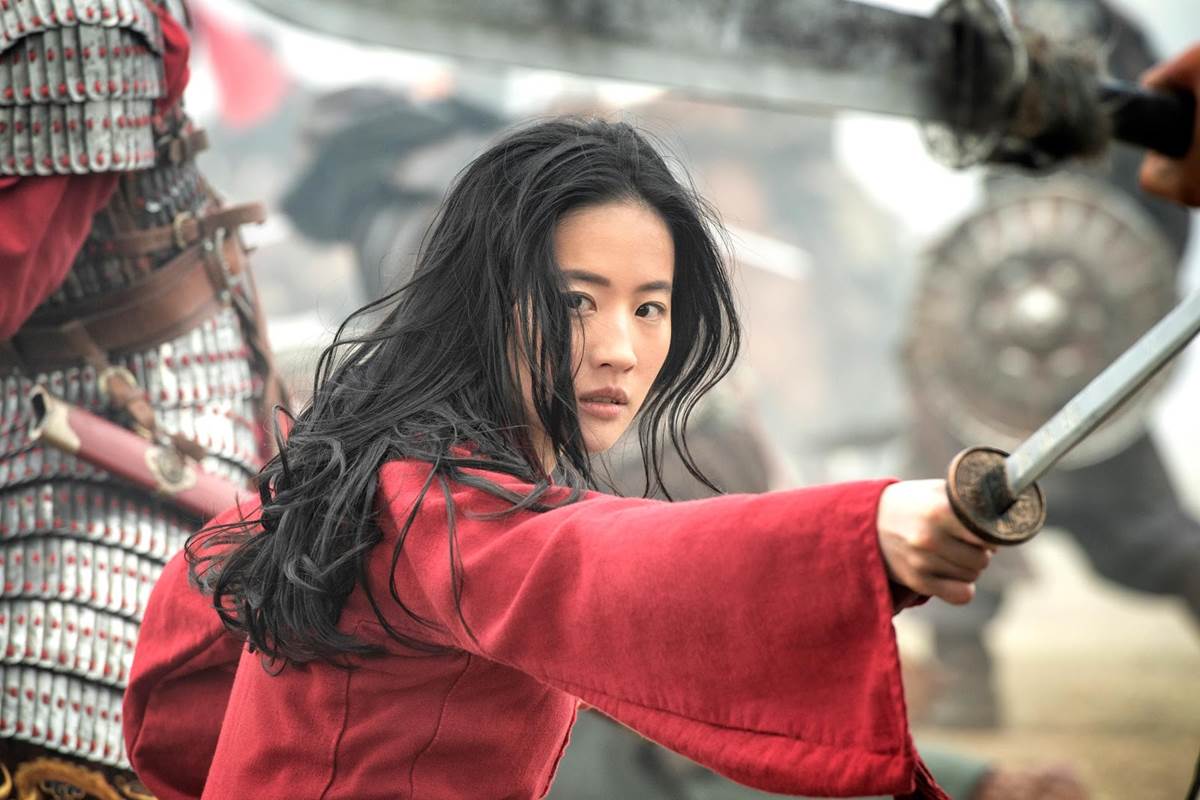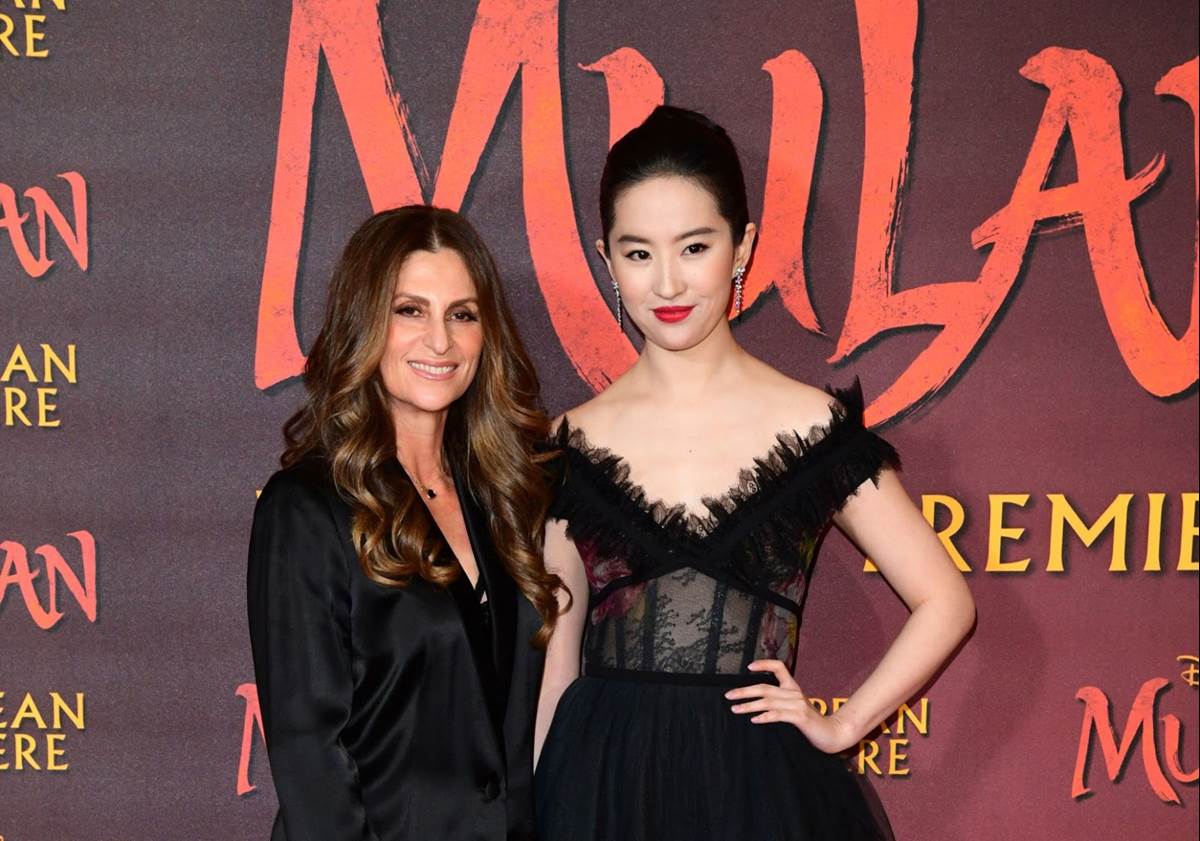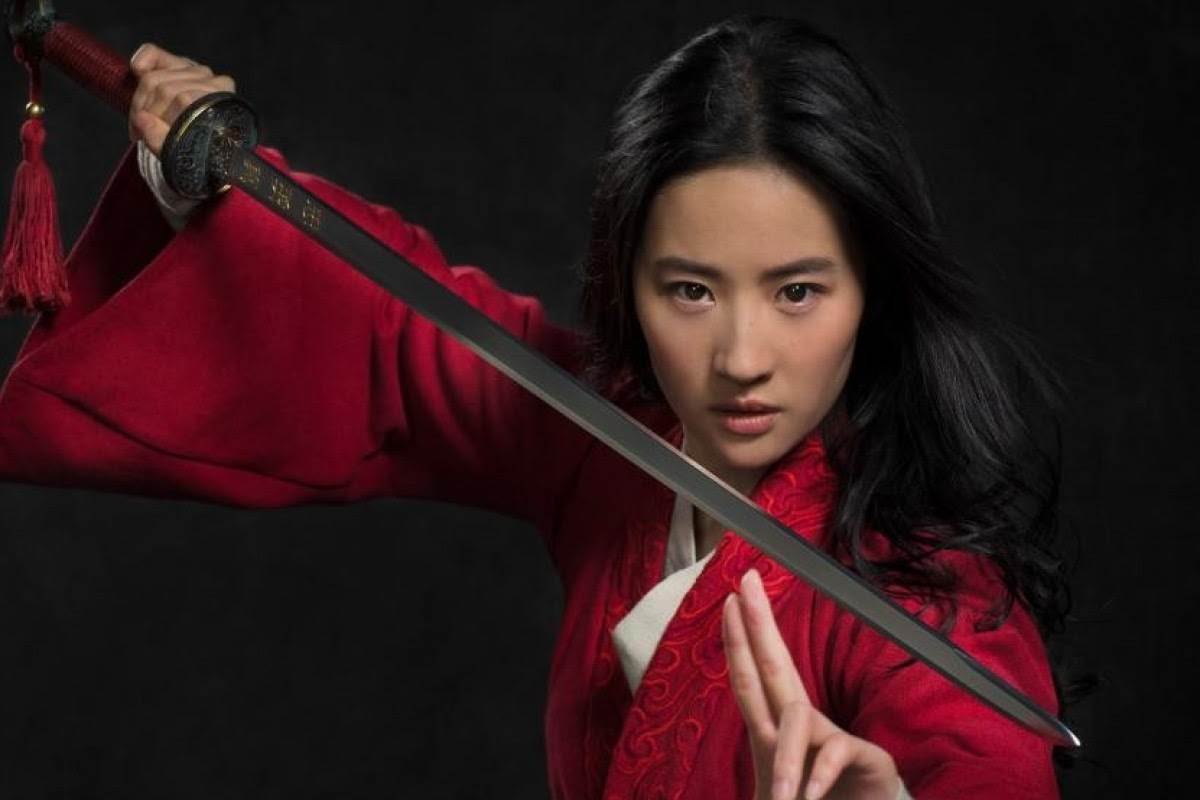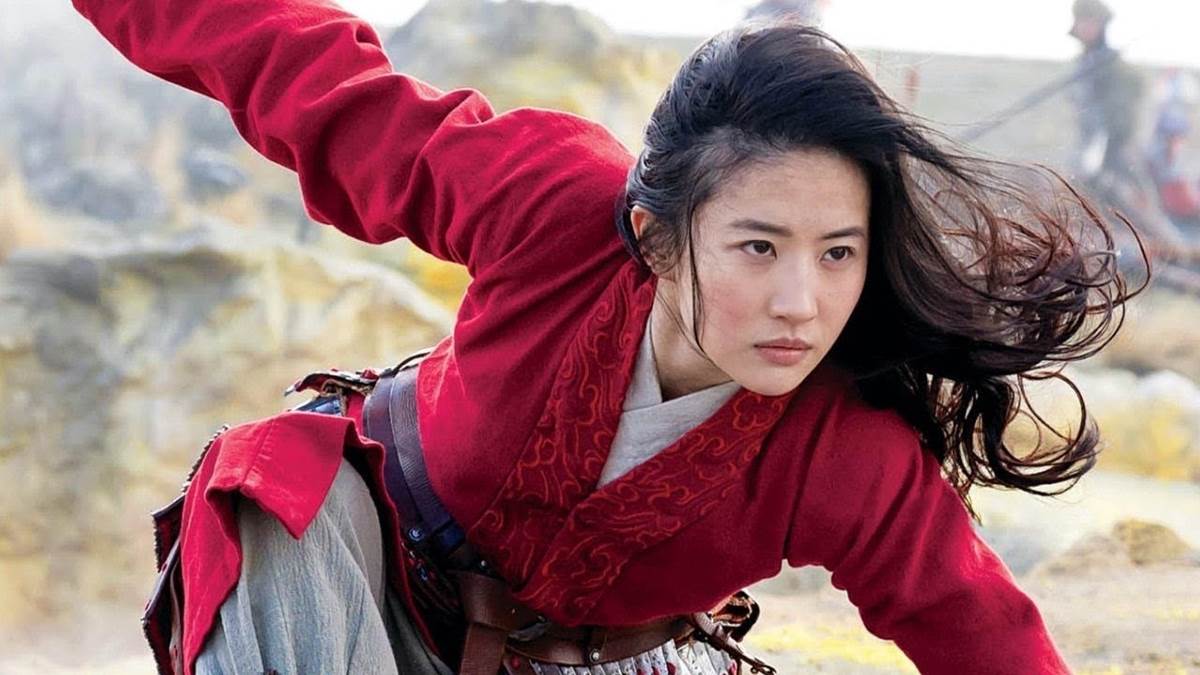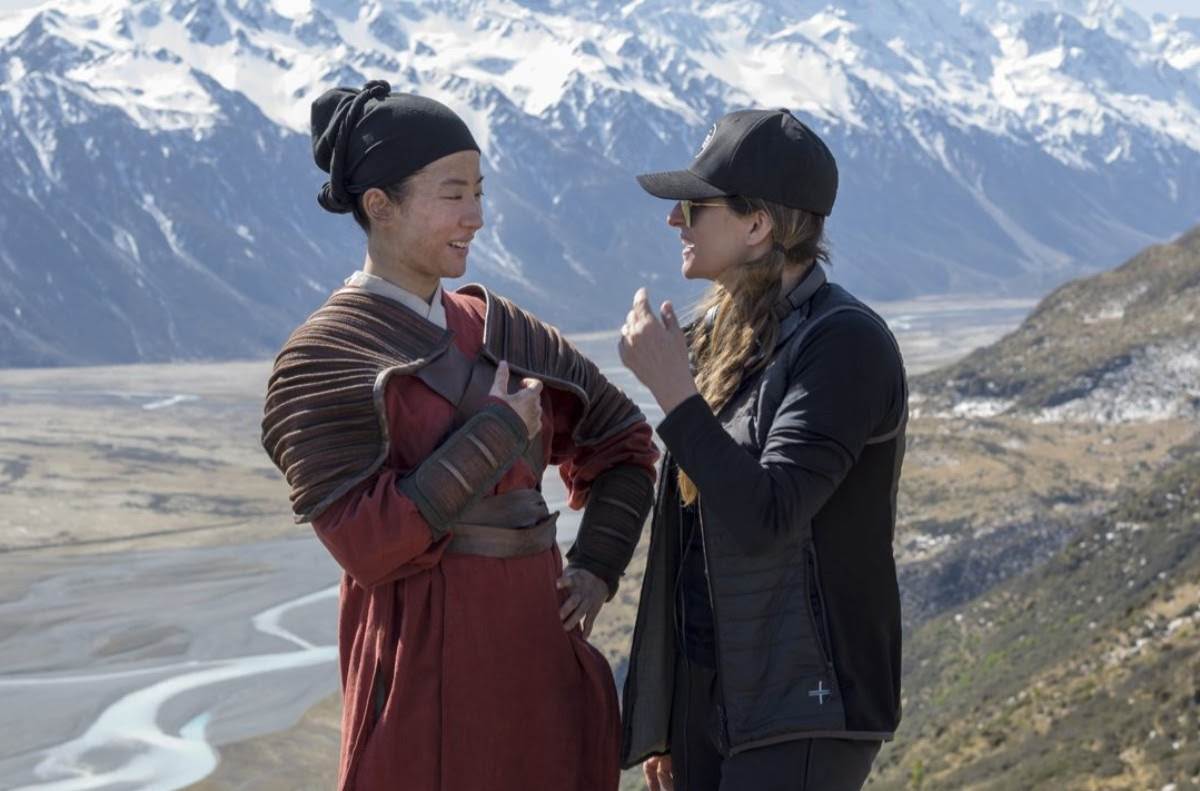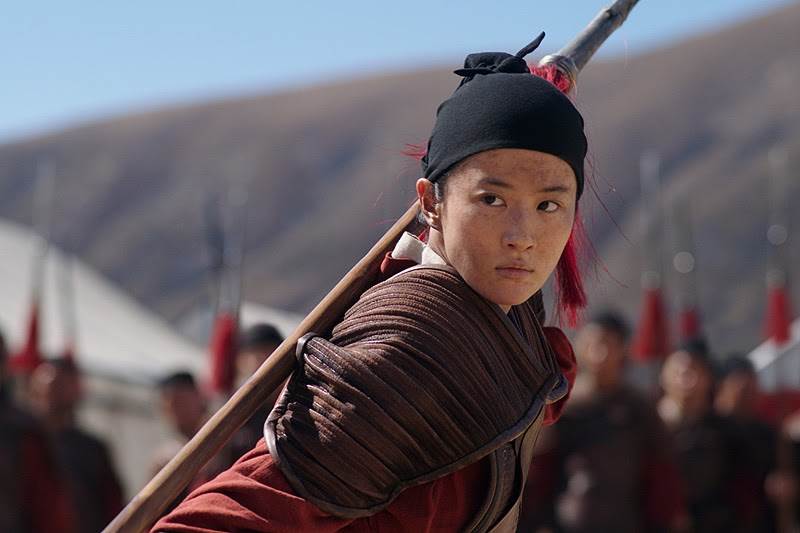Q&A – Star Yifei Liu and Director Niki Caro Discuss Disney’s Live-Action Reimagining of “Mulan”
Over five months since its planned release date this past spring, Disney’s new live-action reimagining of Mulan is finally becoming available to consumers, but not in the way it was originally intended. At the end of this week, the movie will debut exclusively as a premium offering on Disney+ rather than in theaters-- an experiment that will likely determine the future of such releases on the still-fresh streaming service, which launched in November of 2019.
Back in March as part of Mulan’s Southern California press junket, the film’s star Yifei Liu (previously best known for The Forbidden Kingdom) sat down with its director Niki Caro (Whale Rider) to discuss the development and production of the remake with Variety’s Jenelle Riley in front of an audience of invited media.
Q: When did you first discover the Disney animated Mulan? Did this character mean a lot to you over the years as well?
Yifei Liu: I couldn’t remember how old I was when I first watched the animated version, but it’s for sure in my memory and I loved it. In one of my auditions, I actually sang “Reflection.”
Niki Caro: I missed it the first time around; I think those were my nightclub days. But then I had girls and of course I watched it then, and I couldn't believe it. I was so grateful that in a time of princesses, here was a warrior.
Q: Niki, from what I understand, this is the largest live-action film ever filmed by a female filmmaker. Was there some intimidation coming with that, or did you look at it as exciting?
Caro: The intimidating thing is my responsibility to the story, to the studio, and to the audience. As far as budget goes, with every film I’ve made, Whale Rider included, I had a vision that was far bigger than the budget allowed. And so to be able to have a budget equal to the very epic vision of my head this time was just really satisfying.
Q: What did attract you to this project? When you first heard about it, what made you think that you wanted to bring your vision to this?
Caro: Mulan herself-- I love her. I think for me it was her journey from village girl to male soldier to warrior and hero that felt like it spoke for all of us. And it was a story that didn't in fact originate with the 1998 animation, but is about 1300 years old. [It] has been resonating and relevant for centuries, and never more so than now. So, for all of those reasons.
Q: Did you go back to the “Ballad of Mulan,” which I think is probably the first storytelling version we have of this legend, for a lot of inspiration for the movie?
Caro: We sure did. It’s very short but it’s kind of cinematic as well, so we tried to mine everything we could from the ballad. And also just to be inspired by it.
Q: Obviously this movie isn't going to work if you don't have the perfect Mulan. So Yifei, I’m curious, when did you hear that they were making this movie? And what attracted you to play such an iconic character?
Liu: My manager told me ‘there’s this new Mulan,’ and asked me if I wanted to audition for it. I’d heard that so many people auditioned, and so I asked myself, ‘what I can bring?’ Because I know, obviously, this is a role that everyone wants to play because it’s just so meaningful as a woman-- and as a human being-- to really be that brave and loving and accept her imperfectness to become who she really wants to be. I asked myself a lot of questions, because I know the audition process and it is hard. You need to go into a room and continuously run a few scenes that are from different sections of the script. On [one] side, I [was] super excited and nervous, but on another side I wanted to bring the best me. So I needed to meditate and do things [to] calm myself and just get through my auditions.
Q: Did I hear you saw over a thousand actresses for this role?
Caro: Yeah, we did; we did a worldwide search. And we did a really deep search in China, because I think a lot of us in the casting process had this really romantic dream that we might find Mulan in a little village in China. We found beautiful actresses but when it really came down to it, we didn't feel that we had found Mulan, so we started again. A year after we’d started, we went back and went through the list of everybody that wasn’t available the first time around. Yifei was one of the people on that list, and she agreed to come audition. She came to Los Angeles, and she was terrifyingly good as an actor, but also super strong.
The audition was very demanding, and on top of her jet lag and the two hours in the dramatic audition with me, she had to go to a physical audition with a trainer, because I was determined to have a young woman in this role that could understand and commit to the physical nature of the work. She had flown for 14 hours and she hadn’t slept all night. It’s like 5:00 the next day and she’s in the gym with a trainer who’s pushed her to her limits, and she never stopped. She never asked for a break; she did everything that was asked of her. And I knew then that we’d found our Mulan, and that I’d genuinely found a partner and a collaborator and a warrior.
Q: I’ve never heard of a physical audition. What sorts of things did you have to do?
Liu: I remember that the trainer, Bojan [Mladenovic], was super professional. Whenever I did pushups and squats and weights and different kinds of cardio, he went to this thick notebook and wrote something. Then after like ninety minutes I couldn’t walk. I think it was more intense than the actual training process; it really tested my limits. But it was fun and something to remember. When I heard after the audition that I had [gotten] another one, I was relieved because I thought I did an okay job. I was onto the next step, so that [meant] something.
Q: You've done movies that featured heavy martial arts before, but the training for this must have been unlike anything else.
Liu: I did act in some movies that had martial-arts elements, but obviously I’m not a professional. I’m so glad that I had a long time to prepare. That flexibility helped me.
Q: How long were you training for?
Liu: For this movie, three and a half months. I even learned Tai Chi and some Qigong-like movements, because I understand Mulan’s Chi as her connection [to] her spirit-- not the ego, but the true self. I really liked to train this way.
Q: Your whole cast is really fantastic. I could talk about every single one, we just don't have the time. I would love to start with how you started getting people like Jet Li and Gong Li to participate.
Caro: It was amazing that they all wanted to be part of this. I think that's obviously [a] testament to Mulan herself and the enduring nature and specialness of that character in Chinese culture, and also the legacy of Disney.
Q: You also had some fantastic women behind the scenes. You had a female cinematographer, for starters.
Caro: Yes. I think it’s the only movie of this scale and genre where all the voices, all the people running it were women. So me, Mandy Walker, who's the cinematographer, Liz Tan, the first AD-- also a co-producer-- costume designer [Bina Daigeler], makeup designer [Denise Kum]. [It’s a] very female-led show. And of course, being female-led, we were very well-prepared and communicated very effectively. [We] brought it in on time and slightly under budget, because that’s just how we roll.
Q: There’s been a lot of talk about things improving for female filmmakers. Are you seeing a personal improvement?
Caro: Yes, I am, but I would say emphatically there’s room for more.
Q: Yifei, you’ve acted with some legends in the past, not to diminish people like Jackie Chan, but what is it like when you’re sharing scenes with Jet Li and Gong Li and not only holding your own but really standing up to them?
Liu: I’m just full of thanks. I think ‘what an opportunity just to be with them,’ not just because they’re perfect actors and actresses, but because of the kind of human beings they are. I worked with Jet twelve years ago in a movie called Forbidden Kingdom. He was amazing and he taught me a lot. At the time, I didn’t know how to ride a horse. We did [training] together and he helped me. When Donnie was on set doing all those moves, it was really crazy just to watch that. And Gong Li is one of my favorites. She’s my queen, really; I love her so much.
Q: What ended up being your biggest challenge? Not just physical, but there are some really emotional, heart-wrenching scenes. And on top of it all, disguising yourself as a man for half of the movie.
Liu: The hardest thing about Mulan to me is to put myself in that circumstance and to have it be organic, not like acting. I really want to thank Niki for everything; she’s really the kindest human being that I’ve ever worked with. I totally understand why and how people can [elevate] their own self by working with somebody who gives you room and encourages you-- just unconditional love. I really see the role as a whole journey, so I felt the fight sequences are just part of her story along with the emotional parts. It’s just [that] the reaction is different and you're doing different interactions.
Q: How do you prepare to play a man?
Liu: First of all, the voice: it had to be really different. But on top of that, I liked working on the layers of the character and what she was really thinking-- the subtext.
Q: Did it take you a while to find the male voice? Did you try out different versions?
Liu: I think the male voice is the simplest voice because it’s really just lowering your tone. But you have to do it like it belongs to you-- owning it. And [you have] to discover what [Mulan’s] feeling is and be honest to her feelings. Sometimes it could be the smallest details, like a hesitation or a blink.
Q: And Niki, for you, what ended up being the biggest challenge?
Caro: Aside from finding Yifei, the biggest challenge for me was how to tell a story about two armies going to war-- and a young woman going to war-- without being able to show any real fighting or blood under the Disney brand. Game of Thrones has kind of changed the battle game for shooting those sorts of sequences, and it couldn’t be that. So I was really blessed that the fighting style was martial arts, Wushu, and inherently beautiful. But also, I think what unlocked it for me was that I figured out that I could set the battle sequence in a geothermal valley, so that the smoke and the steam could reveal and obscure violence or could suggest it. It could also be very beautiful and very cinematic. And I’m proud of that. I’m proud that the battle sequence feels visceral and robust, but never gratuitous.
DIsney’s Mulan is now available as premium-access content exclusively on Disney+.

